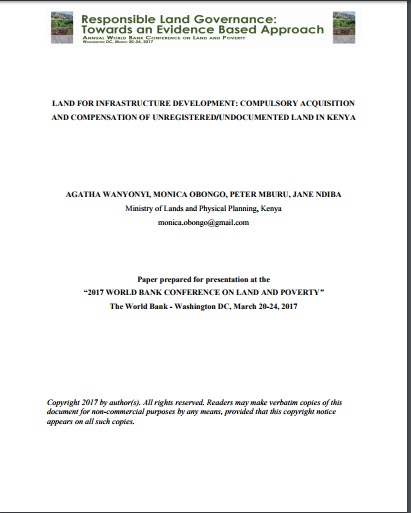Resource information
Kenya’s Vision 2030 aims at transforming the country into a newly industrialized middle income country
and infrastructural development is high on the agenda to achieve this. Competing land uses and existing
interests in land make the use of eminent domain by government in acquiring land inevitable. However
most of the land earmarked for compulsory acquisition comprises of un- registered land whose interests
are not formally documented. Kenya has progressive statutes that provide for compensation of land that is
compulsorily acquired even where the owners/ occupants do not hold legal titles. The paper explores how
the government while implementing infrastructural development projects on land acquired using the
principle of eminent domain; was able to identify genuine land owners and holders of different interests,
value the land and award fair and just compensation. It looks at how grievances were resolved using
alternative dispute resolution mechanisms. It also explores the benefits negotiated for the affected
communities and safeguards being put in place to guide future compensations, protection of family
interests and ways of ensuring participation by women, the youth and vulnerable members of the
community.



